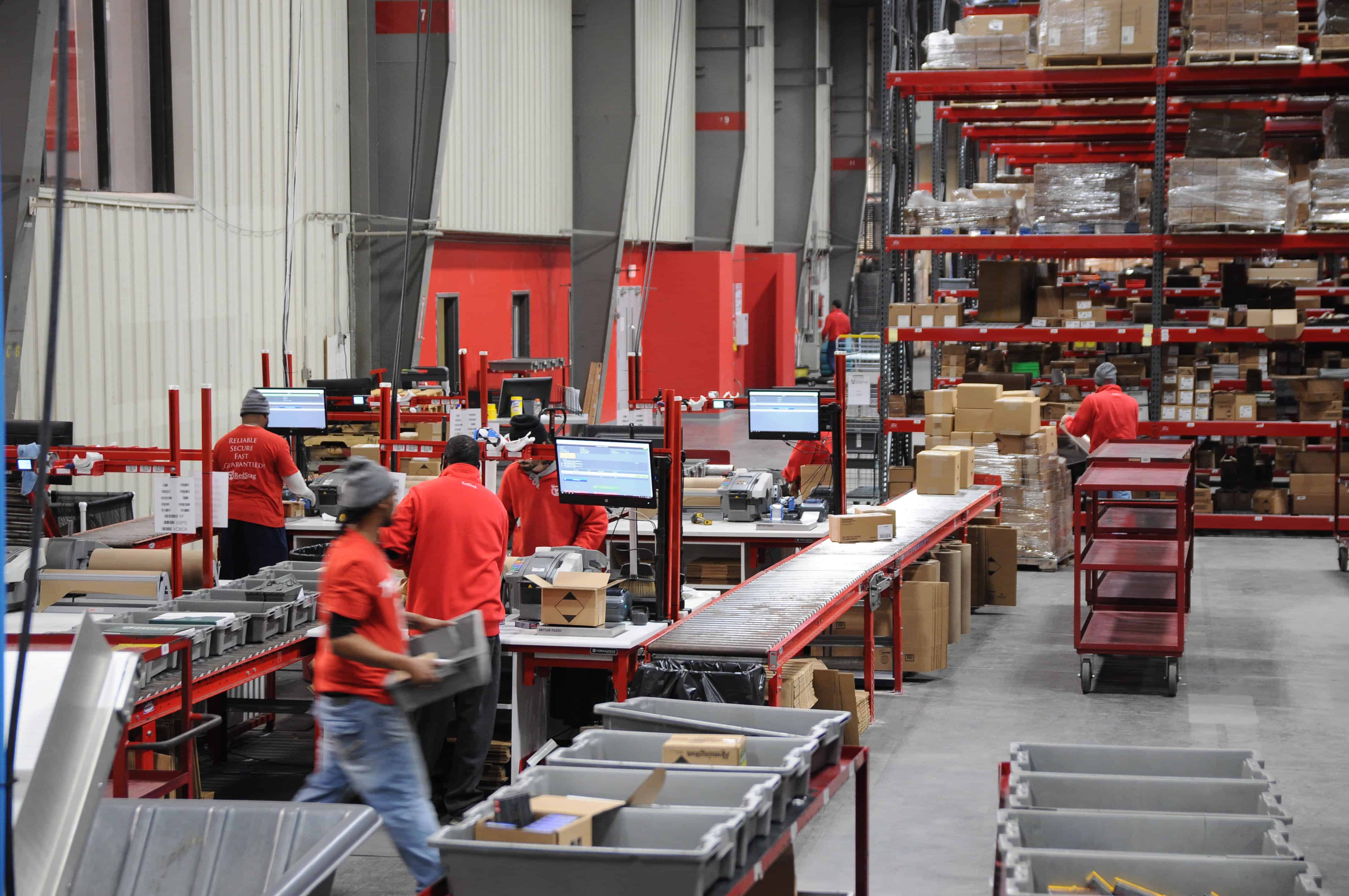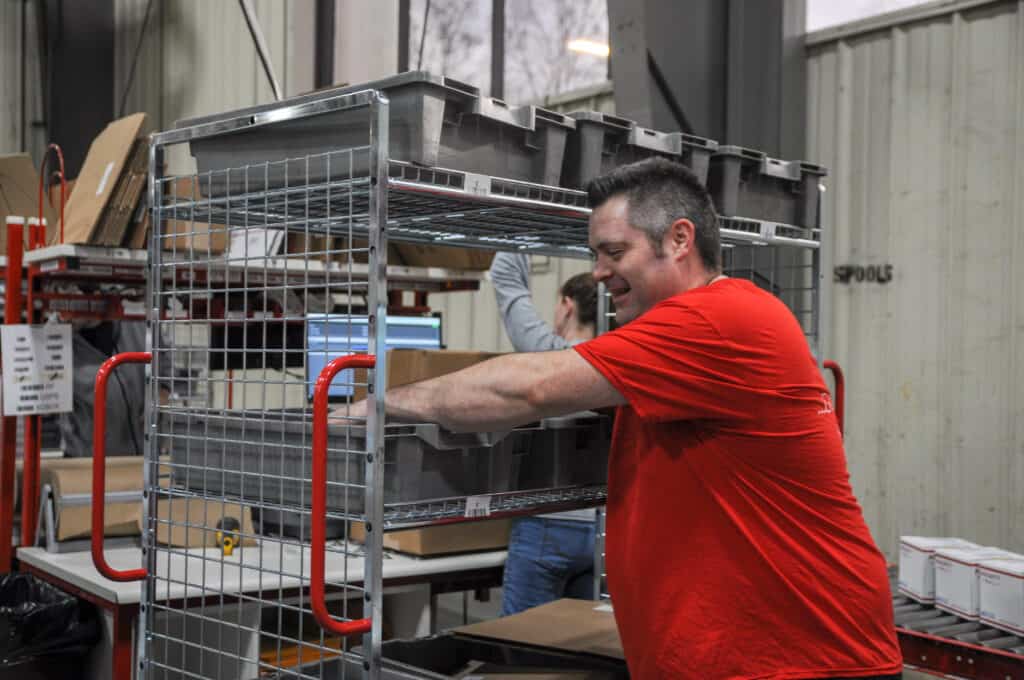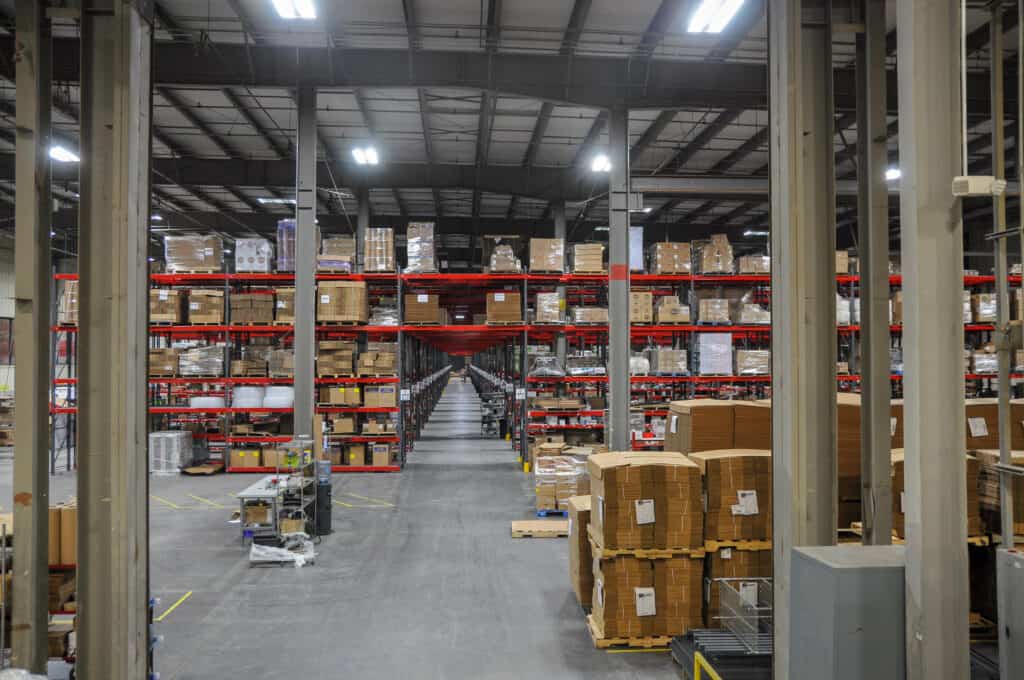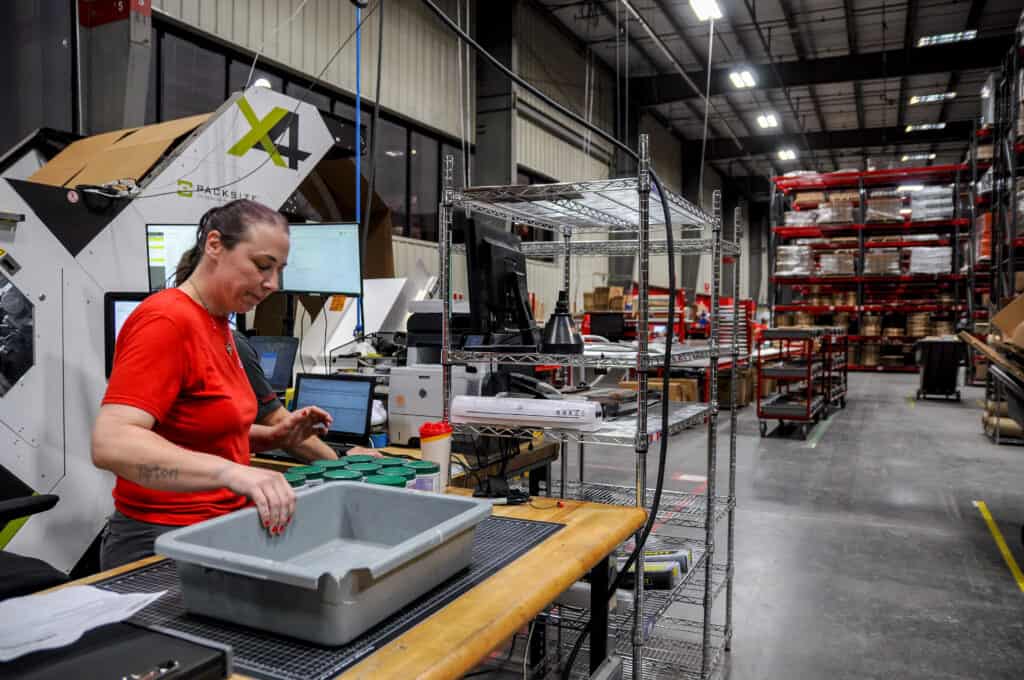Direct-to-consumer (D2C) is a growing trend in eCommerce. Some companies start with a D2C business model, often launching their initial products through crowdfunding. Many brands that sell their products through other retailers have added D2C sales as an additional revenue stream. Excellent eCommerce fulfillment is vital to the success of D2C sales. Here is our guide to help you understand your options for direct-to-consumer fulfillment.

What is direct-to-consumer eCommerce?
Any time a company sells its products to consumers under its own brand, without an intermediary, this is called direct-to-consumer sales. One model of direct-to-consumer sales is brand stores such as H&M, the Gap, or the Apple Store. However, D2C eCommerce is even more popular than branded retail. The overhead is lower, and it gives brands a chance to connect directly with consumers. In addition, a growing number of companies have built brands entirely on D2C eCommerce, with products you can only buy online from the maker.
A core element of a successful D2C brand is its direct-to-consumer fulfillment.
How does direct-to-consumer fulfillment work?
D2C fulfillment starts when a customer places an order online. Then, the order goes to the warehouse, which picks and packs the items and hands them off to a carrier for shipping. There are no middlemen in direct-to-consumer fulfillment. Instead, orders go straight to the fulfillment center that holds your products and, from there, right to your customers.
Elements of direct-to-consumer fulfillment
The order fulfillment process sounds simple, but there are many steps in the process.
- Inbound logistics. Your products arrive in bulk in the warehouse, where they are logged into inventory and placed on the shelves.
- Warehousing. The fulfillment center stores your inventory until items are needed to fill orders.
- Order processing. Your fulfillment warehouse preps orders for shipping.
- Outbound logistics. Major carriers like FedEx, UPS, and USPS pick up packages from the warehouse and deliver them to consumers.
- Returns. Also called reverse logistics, returns are a vital element of D2C fulfillment. Setting up a returns process that is easy for your customers will boost your sales.

In between these steps, fulfillment requires management. Your inventory management strategy should ensure that you have enough stock on hand to fill orders without tying up too much of your capital in inventory. Your packaging choices can affect your shipping costs. Same-day shipping (a service offered by Red Stag Fulfillment) can get orders to customers faster. Fortunately, you don’t have to handle all these details. You have a range of options for direct-to-consumer fulfillment, including outsourcing to a 3PL.
Three options for direct-to-consumer order fulfillment
You have a wide range of options for direct-to-consumer order fulfillment. For instance, you could choose the Shopify Fulfillment Network or drop shipping. However, most eCommerce companies select one of the following three D2C fulfillment options, either alone or in combination.
In-house fulfillment
Many D2C companies handle order processing in-house when they first start. For small startups, self-fulfillment is often a good option while you are bootstrapping your growth.
As your business grows, however, direct-to-consumer order fulfillment can present a challenge. You need to handle marketing, designing new products to add to your line, forecasting demand, and ensuring that your supply chain has the capacity you need to grow. In addition, when you process orders in-house, you need warehouse space and a warehouse management system. Plus, you’ll need to hire and supervise employees to make sure your D2C fulfillment functions smoothly.
Delivery delays, poor communications about delivery, incorrect orders, and other fulfillment problems can kill a D2C business. Even a few angry consumers can hurt your brand image through social media posts or negative reviews. That’s why many of the most successful direct-to-consumer brands outsource their fulfillment.
Fulfillment by Amazon
The first place that many D2C companies turn for outsourced 3PL services is Fulfillment by Amazon (FBA). For brands with a significant presence on the Amazon Marketplace, FBA is a logical choice. Amazon has a vast network of warehouses, its own delivery fleet, and 147 million Prime members who are more likely to buy your product if you can offer Prime shipping through FBA.
However, Amazon FBA also has downsides. Amazon limits warehouse space during the holiday season, which can restrict your sales potential. Your orders go out in Amazon-branded boxes, taking away one of the best branding opportunities for D2C businesses. And the company has been known to copy successful products and rank Amazon-branded knockoffs higher in search results.
When you run a D2C business, your direct line to your customers is through D2C fulfillment. When you use FBA, you place that consumer relationship into Amazon’s hands. For more control over your customer experience and order fulfillment, an independent 3PL is a better choice.
Independent 3PL fulfillment
Third-party fulfillment companies are pros at D2C fulfillment. When you work with a 3PL, you get to make the decisions. You choose which of the 3PL’s warehouse locations you want to utilize for storage and shipping. Your products can ship in your branded packaging, and your 3PL can add package inserts to customize and personalize the experience for your customers.
In addition, fulfillment centers offer a range of services to help you grow your business. For example, Red Stag Fulfillment’s kitting services can improve the way you package and ship grouped items. Our package consolidation insights help you save money on shipping and give your customers a better unboxing experience.

Partnering with a D2C order fulfillment warehouse can improve your operations
You don’t have to choose just one of the options above. For example, you could ship some orders through Amazon FBA and use a 3PL to send the rest. Or you might keep a few special items for in-house fulfillment and outsource your high-volume products. There’s no one-size-fits-all formula for D2C fulfillment.
However, D2C companies get several benefits when they work with a 3PL:
- Professional fulfillment. Fulfillment companies focus all their energies on providing fast, efficient order fulfillment services. When you work with a 3PL, you benefit from experienced staff and well-developed warehouse management systems. Your orders will be professionally packed and shipped, which can increase customer satisfaction.
- Peace of mind. Your orders ship when you’re sleeping. They ship when you’re in a product development meeting or on an airplane. Your 3PL is on the job all the time, and you rarely need to think about fulfillment operations anymore.
- Flexible warehouse space. A rapid increase in sales is a good problem for any D2C company. However, that can leave you scrambling for extra warehouse space and fulfillment capacity. When you work with a 3PL, particularly one that uses the variable cost model for fulfillment, you can quickly and easily scale your fulfillment up or down, depending on demand.
- Gain a valuable partner in your business. Think of your 3PL as your partner in success. When you find the right fulfillment partner and develop a solid working relationship, your fulfillment company can be critical to your business growth. In addition, your 3PL is a resource for questions about packaging, shipping, inventory planning, and more.
- Grow your workforce without adding staff. By outsourcing, you gain a fulfillment department to serve your D2C business, but you don’t have to hire or supervise any staff or worry about fulfillment logistics.

The Red Stag Fulfillment promise
Of course, it matters which fulfillment company you choose. The best fulfillment company for your D2C orders is one with expertise in handling and shipping products similar to yours. Additionally, it’s crucial to consider the level of service provided by the order fulfillment company you choose.
At Red Stag Fulfillment, our accuracy rates are at the top of the industry. That’s why we can offer our customers fulfillment guarantees: if we make a mistake in warehousing, picking, or shipping your products, we fix the problem at no charge, and in many cases, we pay you $50 for your trouble — that’s how sure we are that we’ll provide near-perfect service for your company.
We provide 3PL services for many D2C companies. Red Stag Fulfillment is expert at shipping large products directly to consumers, finding creative ways to deliver hard-to-ship items to customers’ doorsteps. We’d love to talk with you about your D2C fulfillment needs.
More about direct-to-consumer fulfillment:








